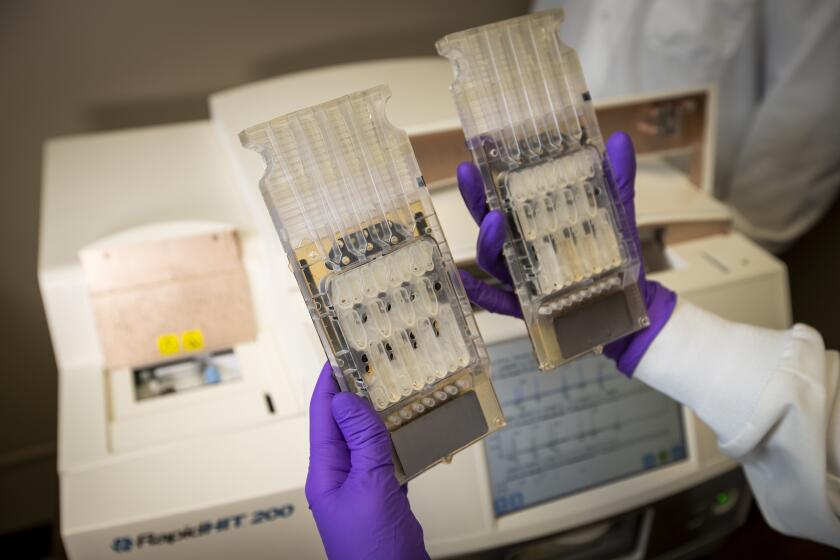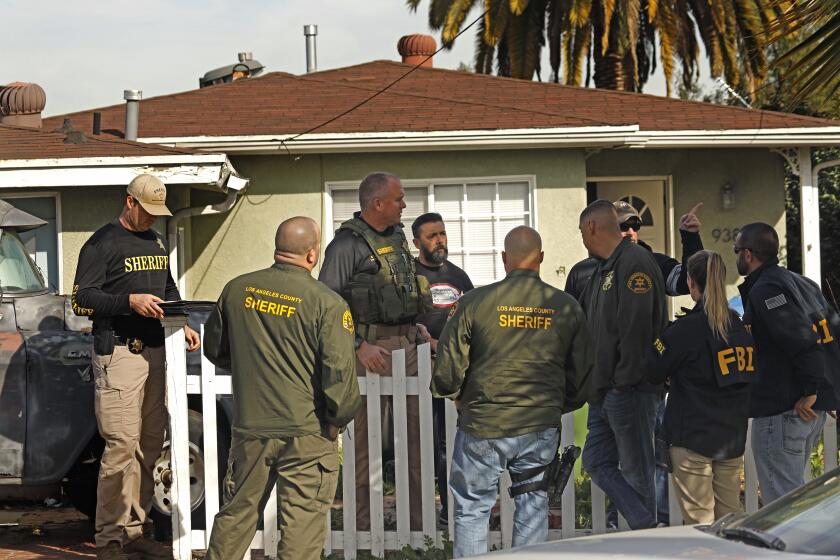Serial rapist pleads guilty to two California assaults in unusual DNA-related case
SACRAMENTO — Twenty years after prosecutors in California filed charges against a then-unknown serial rapist based on DNA samples, a former federal prison guard pleaded guilty Thursday to the crimes.
Mark Jeffrey Manteuffel, 60, of Decatur, Ga., entered guilty pleas to three counts of forcible rape and one count of sodomy for attacks on a Rosemont woman in 1992 and a woman in east Sacramento in 1994. He faces more than 30 years in prison.
Manteuffel wore a mask during the hearing in Sacramento because of concerns over the coronavirus, but the judge asked him to remove it when entering his plea so the victims’ families could hear him, the Sacramento Bee reported.
He also acknowledged using a knife during the attacks and inflicting great bodily injury.
He was expected to be taken to Yolo County to plead guilty to kidnapping and raping a Davis jogger in 1994.
The former Federal Bureau of Prisons employee once studied and lectured part-time at Sacramento State University.
There’s big money to be made in marketing “rapid DNA” technology. But some forensics experts say the technology could hinder prosecutions if not handled correctly.
Prosecutor Amy Holliday said Manteuffel was masked when he sneaked into his victims’ homes, entering one through an air duct and attic to avoid a security system.
Once inside, he would beat the women with a heavy object, slash away their clothes, bind them hand and foot, cover their heads with pillowcases and rape them repeatedly at knifepoint, Holliday said.
He threatened to kill them if they called police, prosecutors said.
Sacramento County prosecutors never identified a suspect at the time, but investigators tucked away rape-kit samples from the Sacramento and Davis attacks in hopes that the budding science of DNA analysis would one day lead to a match.
Nearly 24 years after Cal Poly San Luis Obispo student Kristin Smart disappeared, investigators and the FBI have served search warrants in three locations.
In 2000, an arrest warrant was filed against “John Doe DNA” — an anonymous snippet of DNA code — only two days before the statute of limitations was to run out. Criminal charges were filed — the first time in California that unidentified DNA was charged with a crime, although it had been done elsewhere.
Using searches of genealogical databases to find his family tree DNA, investigators finally tracked down Manteuffel, obtained a sample of his DNA and arrested him last year at his home.
“This is a case that shows the power of DNA — a ‘John Doe’ warrant that set the standard for holding people accountable,” Sacramento County Dist. Atty. Anne Marie Schubert said after the hearing. “Let’s face it, he wouldn’t have been caught. He was hiding in plain sight.”
More to Read
Sign up for Essential California
The most important California stories and recommendations in your inbox every morning.
You may occasionally receive promotional content from the Los Angeles Times.












